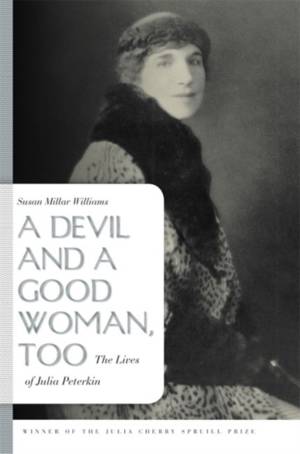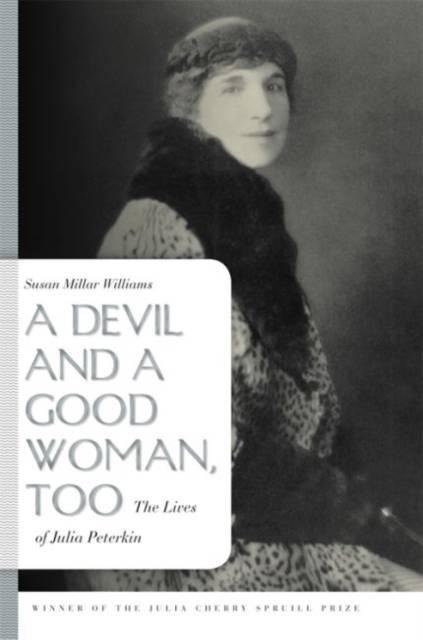
- Afhalen na 1 uur in een winkel met voorraad
- Gratis thuislevering in België vanaf € 30
- Ruim aanbod met 7 miljoen producten
- Afhalen na 1 uur in een winkel met voorraad
- Gratis thuislevering in België vanaf € 30
- Ruim aanbod met 7 miljoen producten
Zoeken
€ 48,45
+ 96 punten
Omschrijving
Julia Peterkin revolutionized American literature by writing seriously about the lives of plain black farming people. In five bold, lyrical books she pushed the bounds of realism to earn the startled praise of such intellectuals and literary artists as W. E. B. Du Bois and Langston Hughes. A plantation mistress who vowed to "write what is, even if it is unpleasant," she took up writing at age forty, produced two best-selling novels, and won a Pulitzer Prize before mysteriously abandoning writing twelve years later.
Peterkin's fiction chronicles the collapse of plantation agriculture on the Gullah coast of South Carolina. At the same time her writings are a thinly veiled autobiography of a southern white woman struggling to create something new out of the beauty and sorrow around her. Writing to her mentor H. L. Mencken in 1922, Peterkin declared, "These black friends of mine live more in one Saturday night than I do in five years. I envy them, and I guess as I cannot be them, I seek satisfaction in trying to record them." The first full account of Peterkin's life, A Devil and a Good Woman, Too is an exemplary biography of a brilliant, enigmatic woman who defied convention, lived as she pleased, and wrote what she knew.Specificaties
Betrokkenen
- Auteur(s):
- Uitgeverij:
Inhoud
- Aantal bladzijden:
- 392
- Taal:
- Engels
Eigenschappen
- Productcode (EAN):
- 9780820332505
- Verschijningsdatum:
- 15/10/2008
- Uitvoering:
- Paperback
- Formaat:
- Trade paperback (VS)
- Afmetingen:
- 156 mm x 234 mm
- Gewicht:
- 548 g

Alleen bij Standaard Boekhandel
+ 96 punten op je klantenkaart van Standaard Boekhandel
Beoordelingen
We publiceren alleen reviews die voldoen aan de voorwaarden voor reviews. Bekijk onze voorwaarden voor reviews.











